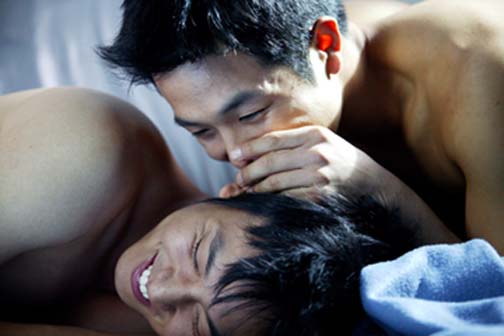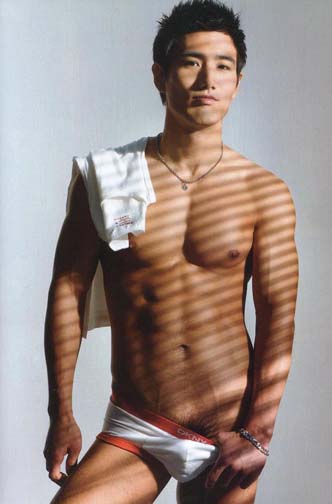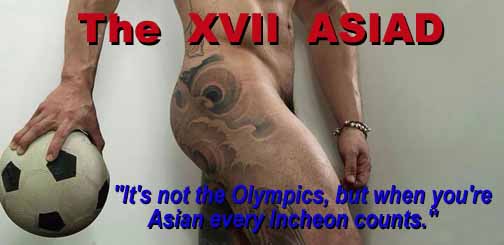Will there be any gay athletes at the 17th Asian Games? With both diving and gymnastics on the agenda, undoubtedly. But just as undoubtedly none will be out and proud. When it comes to interpersonal relationships, Asia as a whole is still fairly conservative. And while gays attending the Games as either participants or spectators will not face the extreme prejudices that those attending the Sochi Winter Olympics did, South Korea is not exactly a hotbed of equality and gay rights.
While lesbian, gay, bisexual, and transgender people in South Korea face legal challenges and discrimination not experienced by breeders, same-sex sexual activity is legal in the country (except for in the military where any sexual relations between same-sex partners is considered sexual harassment). Homosexuality in South Korea is not specifically mentioned in either the constitution or in the Civil Penal Code. And Article 31 of the Korean Human Rights Committee Law states that “no individual is to be discriminated against on the basis of his or her sexual orientation.” Plus, the transgendered are allowed to have sex re-assignment surgery after the age of 20 and can legally change their gender information on official documents. So on some issues South Korea is ahead of a lot of the rest of the world. But same-sex marriage is still not legal, and while polls show the country’s citizens are slowly warming to the idea of gays and equality, generally homosexuality remains largely taboo in South Korean society and same-sex couples are seldom if ever seen in public.
But then that is largely due to the sexually repressed soul of the Korean people. Before the Korean war, any mention of sex was taboo in Korean society, and the climate remained hostile to frank discussions of sexuality under the postwar military governments. Public discourse on sexuality has really only started to emerge in the last few years, (the first Korean college textbook on human sexuality was published in 1990). As for being gay, it’s not really an issue in Korea because many people are simply in denial of homosexuality’s very existence, and many who acknowledge there are guys who prefer doing guys think it is just something foreign people do. Not that you’d ever suspect that from the large number of men available on phone aps and internet hook-up sites; Korean society provides for plenty of opportunities for gay play, but little room for locals to come out.
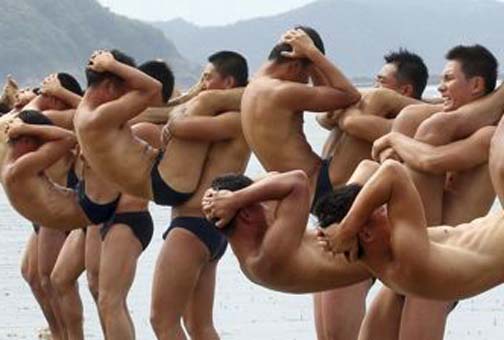
Despite what Korea Special Forces’ work-out session look like, same-sex shenanigans in the military are considered sexual harassment and punished as a form of rape (although a discrimination suit brought against the policy won, the decision was appealed and still remains to be decided by the courts today).
On the plus side, the denial of homosexuality in the country results in an enormous tolerance for homosocial touching in Korea. Same-sex friends often hold hands and rub each other in the streets without raising an eyebrow, while mixed-sex couples doing the same would be frowned upon. And way before Channing Tatum floated the idea of crotch brushing as the way for bros to say hello to each other, Korean men – who insist that there is nothing sexual bout it – brush male friends’ ass or bulge when parting ways. And since same-sex roommates before marriage is part of normal life, younger gay couples can easily hide their relationships. At least until they hit an age where their families start demanding they get married (and not to each other).
Historically, the love that dare not speak its name spoke Korean quite fluently. The country had its own version of England’s Edward II, King Hyegong, who historians describe as a man by appearance but a woman by nature, was killed by jealous nobles for his preferential treatment of his favorites to what they claimed was to the detriment of his realm, but in reality was probably only detrimental to their influence and pocketbooks (and unlike Edward, Hyegong didn’t get to unexpectedly bottom as his last act). Two other rulers of the ancient Kingdom of Goryeo, King Chungseon and King Gongmin were also assumed to be gay as both spent considerable time with their wonchung (male lovers), known as chajewhi (little brother attendants).
None of those ancient rulers however, were the inspiration for the 2005 blockbuster South Korean movie The King And The Clown, which became the highest grossing movie in Korean film history even though it is a gay-themed movie based on a court affair between a king and his male jester (a rather effeminate character called Gong-gil). Which would lead you to believe that homosexuality, while generally being denied, is accepted in the entertainment field. And yet several well-known Korean actors who came out, or were outed, either lost their jobs and careers or killed themselves.
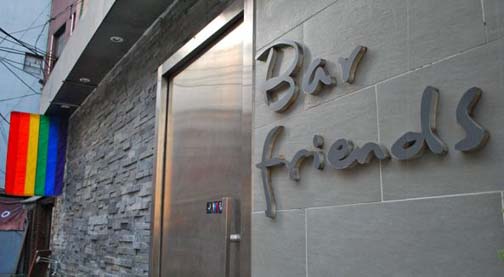
South Korea’s capital city, Seoul, boasts more than 100 gay bars, clubs, and pubs, but most are small, tiny, and nondescript places.
So it is not surprising that gay clubs in the country tend to keep a low profile; most are owned by London-based gay nightclub developer Tim Kim (hence Seoul’s gay section in Itaewon being known as ‘Tim’s Closet’ and more popularly as Homo Hill). There are enough clubs in the Itaewon area to fit almost every genre and cater to every demographic and while the scene is a bit dull during the week come weekends it can get pretty wild with bars and clubs open to 5am. The capital city’s Jongno district is home to a growing number of small gay hangouts too, most with a more local vibe and most extremely tiny. And Hongdae is an up and coming area featuring a few popular gay clubs if you can’t find who you like in Itaewon or Jongno. Today, as secretive as the iban (Korean for queer) community once was, there are over 100 gay bars, clubs, and pubs in Korea’s capital city. Saunas and massage shops too are part of the scene and getting laid is a breeze, especially if you are not Korean.
Incheon, or Bupyeong, where the 17th Asian Games are being held is a different story. There is a small smattering of gay establishments in the area, but generally it’s a dead scene. Seoul, where all the action is, is only an hour train ride away however, so while participating athletes may have to rely on Jack’d to explore Korea’s gay community, visitors who feel the need to get their pink on can head into the wilder side of the country for a night. Or two if ya get real lucky. ‘Cuz gay or straight, Korean men are some of the hottest guys in Asia.
[‘The XVII Asiad’ are a series of posts about hot competitors and general articles about the 2014 17th Asian Games of interest to gay men. So, yeah, lots of hot male eye candy. Click the XVII Asiad’ graphic below for additional news, stories, and pictures.]

